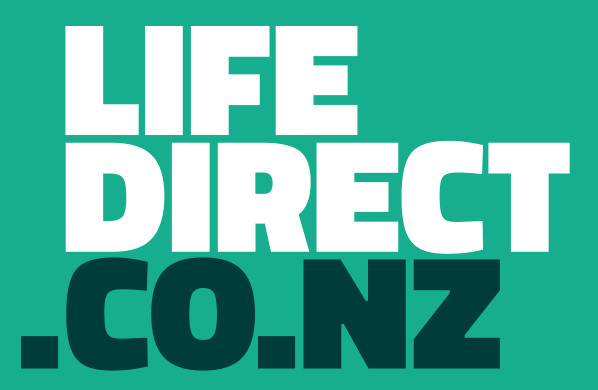Life Insurance - Essential Policy Features, What to Look For and Questions to Ask Before Buying a Policy
Updated 28 April 2023
Summary:
Our guide covers:
Video explainer: MoneyHub Founder Christopher Walsh explains what to look for in an insurance policy (and what questions to ask) in the video below:
- When planning for your and your family’s financial future, life insurance should be an essential consideration.
- Any home purchase or the arrival of a child is a significant life event - life insurance will provide peace of mind knowing that your family and loved ones will be cared for if something happens to you.
- The alternative of life insurance is no protection should disaster strike, and you're no longer around to take care of your family. Your passing would likely mean problems with repaying a mortgage, meeting the day-to-day costs of your family (food, bills and clothing etc.). Many families have too many ongoing expenses to establish an emergency fund, so things can quickly get difficult.
- If you are looking at taking out a policy, what suits you best will depend on your current financial situation and family needs.
- Our guide outlines some of the most important things to look for when selecting a policy to fit your needs.
Our guide covers:
- Life Insurance - Essential Policy Features and Must-Haves
- 5 Tips for Choosing a Life Insurance Policy and Insurer
- Questions to Ask Before Buying a Policy
Video explainer: MoneyHub Founder Christopher Walsh explains what to look for in an insurance policy (and what questions to ask) in the video below:
|
Your guide to life insurance essentials is published thanks to Life Direct
|
MoneyHub Founder Christopher Walsh shares his comments on shopping for a life insurance policy
|
"Life insurance has become much more transparent in recent years. With at least six insurers offering online quotes and several online brokers touting for your business, the 'market' is competitive. And, despite the transparency around pricing, selling life insurance policies remains very lucrative for both insurers and traditional insurance brokers.
The power is in your hands and you should never be rushed into buying a policy without full consideration. There's a lot to consider; working with a broker (and/or insurer) that you know will be there for your family should disaster strike is essential. It's absolutely critical to understand your policy in detail - to do this, you'll likely need to ask questions and receive clear answers. There's no such thing as a silly question when it comes to life insurance and a detailed discussion is all part of the sales process. Nothing in life is guaranteed other than death and, all going well, the full payout of a life insurance policy. We've put together this guide to help you make an informed choice. The good news is that New Zealand is highly regulated and the insurers in operation are financially secure. That being said, each policy varies and what suits one family may be too limited for another. Whatever you decide on, please remember that you need to be happy with the policy, specifically its ongoing costs and inclusions". |
Christopher Walsh
MoneyHub Founder |
Disclaimer: Our guide does not constitute insurance or financial advice in any form. Our guide is journalistic in nature. We believe our considerations and suggested questions to ask is provides a standard framework to help any New Zealander make a more informed choice when looking to buy life insurance. There is no single "best life insurance" - the policy that's right for you will be based on a number of factors as we outline below.
Life Insurance - Essential Policy Features and Must-Haves
Life insurance policies are, generally, fairly similar. However, your age, health and desired cover (e.g. dollar payout) will influence what you pay and how your family is paid (in the worst-case situation). We've listed what we consider to be important policy features:
- Affordable premiums - there's no point paying for too much cover (you're insuring for the loss of your life, not to leave your family a lottery-sized cash payout)
- An insurance company with a strong financial rating - New Zealand life insurers are generally solid but understanding financial strength is important before making a policy decision.
- A clear annual increase policy - Insurers are entitled to increase the policy cost each year based on inflation etc. How and why there is an annual increase needs to be clear and understood.
- Full payment on terminal illness diagnosis - this is increasingly a standard feature to help a family plan their next steps while the policyholder is alive.
- Various death benefit levels - you may prefer to insure for $250,000, $2,000,000 or something in between etc.
- Funeral grant - Upon death, your insurer pays out the beneficiary a set amount, usually $10,000 to $15,000 for a funeral.
- Guaranteed Insurability - this allows you to increase your death benefit without additional underwriting. Most insurers allow you to adjust your cover level if you have a significant life change such as getting married, having a child, taking out a mortgage, or getting divorced.
5 Tips for Choosing a Life Insurance Policy and Insurer
When choosing a life insurance policy, we've listed some tips to consider when you research the best cover for your needs:
Financial StabilityA life insurance policy is only as good as the company that backs it. When you buy a life insurance policy, you will likely have it in place for many years to come, so you want to make sure the insurance company you choose to buy your policy from is financially stable and will be around when and if a claim is filed on your behalf.
A.M. Best, Fitch, and Moody's are three independent agencies that rate the financial strength of New Zealand (and overseas) insurance companies. While these reports can be very insightful regarding the insurance company's financial strength and stability, they are considered an opinion. The ratings of the same insurance company can differ among rating agencies because they each have their own proprietary rating methodology. Each rating service uses an alphabetical rating scale, but an A+ from one rating agency may not have the same meaning as an A+ from another. The agencies often disagree on ratings, so you should consider a company's rating from two or more agencies before judging whether to buy or keep a policy from that company. The rating scales of each of the major financial rating agencies are listed below. These ratings can be confusing, so it is important to talk with a life insurance professional who can help you decipher what the ratings mean before selecting an insurance company to buy life insurance from. As a background, we've listed the current financial strength ratings from popular insurers (and a table underneath to understand where these ratings are placed on each agency's scale). The data is sourced from the Reserve Bank of New Zealand.
|
Consider discussing your needs with a life insurance professionalWorking with an experienced life insurance broker can help you understand the many available options and the insurance companies available to choose from. They will talk with you to understand your current financial situation and help you develop a plan that meets your family's needs.
It is essential that you ask them about any aspect of the life insurance policy or product you consider that is not clear to you. It is also critical to regularly review your insurance coverage with your broker to ensure that your coverage keeps up with changes occurring in your life. |
Determine how much coverage you needThere are many calculators and planning tools available that can help you determine the amount of coverage you might need. To keep this simple, we suggest using our life insurance calculator to get an estimate. How much coverage you are comfortable with and can afford will also play into your decisions.
|
Determine if you want any optional coverA basic life insurance policy will provide your loved ones with a financial benefit at the time of your death. However, there are several additional options you can choose to add to your life insurance policy. The optional cover will vary depending on the insurance company you purchase your policy from - examples are presented in the table above.
|
Communicate the reasons you feel you need life insuranceWhen working with a life insurance broker, it is important to let them know the reasons you are looking to buy life insurance to help you find a policy that meets your needs. Did you recently get married or have children? Do you want to ensure a spouse or loved one is taken care of financially in the event of your untimely death or ensure that a child's education can be paid for? There are many reasons why you should consider life insurance, and it should be a critical part of your overall financial plan.
|
Questions to Ask Before Buying a Policy
To help you make the a fully informed choice, we list suggested questions to help you find the right life insurance policy that doesn't let your family down.
Who are you buying life insurance for?
The answer is almost certainly your family, but you need to be more specific about the beneficiaries you're protecting. For example, is it your spouse, children, a business partner or someone else? And how much do you want to leave to each beneficiary?
How much insurance cover do your beneficiaries need?
The higher the cover, the more security you offer your loved ones. However, this comes at a higher cost by way of your monthly or annual premiums. Conversely, underinsuring isn't helpful either - for example, insuring for $250,000 when your mortgage is $800,000. Our life insurance calculator helps you think about what level of cover you may need.
How long do you plan to have a life insurance policy?
Are you insuring for the term of your mortgage, or do you want to buy life insurance "for life" to benefit those in your will after you pass? First, you'll need to assess what risk you're insuring for (i.e. removing the risk of your family unable to pay bills/mortgage, or the risk you leave nothing to next generations, etc.) and decide accordingly.
How much can you afford to pay per month (or year?)
A life insurance policy is an ongoing commitment alongside everyday necessities, and you need to be able to afford the payment without any stress. To help you find an affordable policy, we suggest reading our life insurance comparison guide and life insurance calculator.
What details do I need to provide to an insurer?
It depends on your situation. Sometimes you'll need to send over medical records, while answering a set of questions is usually sufficient for young and healthy people. Each insurer will have a unique approach - the best approach is to gather quotes by answering the questions to help you determine who offers the best experience without compromising cover.
Can the policy be changed later?
Significant life events are often unplanned as much as a lot might change in your life, often in a very short space of time - moving home, having another child, or getting divorced may affect your need for life insurance. Having a policy that lets you amend the benefits later on is arguably the best way to approach life insurance to best protect your loved ones while minimising risk.
Does your job already offer life insurance cover?
It's not too common in the New Zealand private sector, but it's worth asking human resources to be sure. Companies have strong buying power and can negotiate good discounts, passing on the savings to their employees.
Is the insurer reliable and trusted?
Insurance is worth nothing unless the insurer can payout on claims. The financial stability of each insurer is outlined above. Furthermore, the New Zealand government regulates insurance so that the risk is low (although it can never be eliminated). We suggest looking for online reviews to understand how the insurer behaves. Our life insurance comparison guide is also a helpful starting point.
Can you add additional insurance cover to the policy?
Most life insurance should payout if the policyholder is diagnosed with a terminal illness. However, you may wish to add extras like mortgage protection or income protection to help your ongoing obligations if you find yourself out of work. If you'd like to do this, life insurers and brokers can offer discounts on additional policies or add the required cover into the life insurance policy.
Do you understand "Level Cover" vs "Stepped Cover"?
This is important to avoid surprise costs later on. Generally, life insurance is priced in two ways - level cover (fixed pricing, making it easy to budget for) and stepped cover (annual increases meaning you'll pay 2% to 15% more every year for a policy as you get older).
LifeDirect explains this in detail:
Level Cover
Level cover comes in four length (term) options: 10 years, and until age 65, 70 or 80. If you keep the policy for longer than the term length, you will switch to Stepped.
Why choose Level cover?
Stepped Cover
Stepped cover premiums will rise between 2% - 15% each year, depending on your insurer. This is to cover the increased risk of you claiming your policy.
Why choose Stepped cover?
LifeDirect explains this in detail:
Level Cover
Level cover comes in four length (term) options: 10 years, and until age 65, 70 or 80. If you keep the policy for longer than the term length, you will switch to Stepped.
Why choose Level cover?
- Premiums that don't increase with age
- Control over the longer-term pricing
- Greater control over your budgeting
Stepped Cover
Stepped cover premiums will rise between 2% - 15% each year, depending on your insurer. This is to cover the increased risk of you claiming your policy.
Why choose Stepped cover?
- The most common pricing structure
- Cheaper upfront cost
- More affordable in the short term
Related Life Insurance Guides:
- Compare Life Insurance
- Life Insurance Policy Comparison - Cigna vs AIA vs Asteron Life vs Fidelity vs Westpac vs Partners Life
- Life Insurance Calculator
- Pre-Existing Medical Conditions
- Buying Life Insurance Direct vs. Using an Insurance Broker
- When To Cancel Or Change a Life Insurance Policy
- Life Insurance For Smokers and Vapers





















